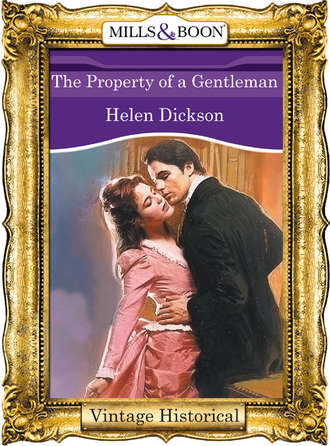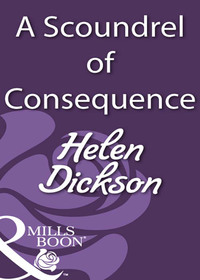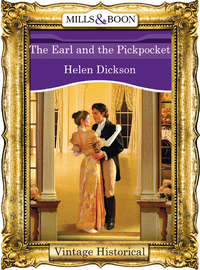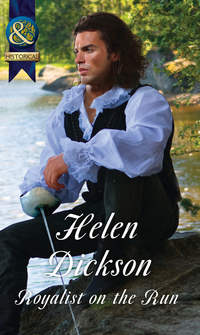
Полная версия
The Property of a Gentleman
Her parents had spoilt and cosseted her to excess from the moment she was born, sheltering and allowing her to go her own wilful way—until three years ago, when, by her own foolishness, she had suffered a lapse from grace and her mother had died, causing her much grief. Her sorrow had increased in intensity when Sir John had become ill soon afterwards with a cancer that had slowly begun to eat its way through his wretched body.
Sitting perched on the edge of her seat as if her backbone was made of hard steel, Eve tried to fight off her growing alarm. Until now she had believed that the reading of the will was to be a mere formality, confident that she knew exactly what it contained and having no reason to be concerned—that even though the estate was in entailment and that no part of it could be sold to provide for her, her father would have seen to it that she would be well taken care of.
But suddenly she felt herself grow tense and anxious, sensing instinctively by the tone of Mr Soames’s voice that all was not as it should be. Her throat went dry and she spoke with difficulty.
‘A shock? But why should it be a shock? What precisely do you mean, Mr Soames? My father has left me well taken care of, hasn’t he?’
‘Yes—that is so, but it may not be what you are expecting.’ He focused his eyes on Gerald, who was watching him intently, every muscle in his face tense. ‘The entire estate—that is, the land, the house and other properties—both here and in London, are to go to you, sir.’
Eve waited, going colder by the second, trying not to look at Gerald as he tried to conceal his triumph, knowing there was little left to come her way but expecting her father to have made a substantial sum over to her.
‘You, Eve,’ Mr Soames went on, shifting his gaze once more to her, ‘are to receive an annuity in the sum of two thousand pounds a year.’
When he fell silent she waited in expectant anticipation, expecting him to continue, to tell her there was more, until she realised there was nothing more. Her heart rose up to choke her and she stared at him in absolute confusion and astonishment.
‘But—but that’s not possible. There must be some mistake. There has to be. My father’s assets—he—he was an extremely wealthy man. It has to be more than this.’
‘There is no mistake,’ he said quietly, his voice penetrating the mist of Eve’s bemused senses. ‘His main assets are private matters and have nothing to do with the estate—namely, his shares in several coal mines and interests in various industrial concerns and so forth, several of them in which he and Mr Fitzalan were partners and which he made over to him before he died.’
All the colour drained out of Eve’s face and her hand rose and clasped the collar of her black mourning dress. She was stunned, unable to believe what he had told her. A silence fell upon the room which seemed to last an age, the small assembly around her becoming shadowy, faceless figures, all staring at her, until Gerald, acknowledging his good fortune in inheriting the estate—and yet beginning to feel a trifle perplexed that not all Sir John’s property had passed on to him as he had expected it would—began talking animatedly to Mr Soames about what it would mean to him, with little regard for the pain and disappointment that was tearing Eve apart.
The still, quiet figure of Lady Pemberton sat rigidly on her chair towards the back of the room, neither shock nor surprise disturbing the marble severity of her face, but her eyes and ears missed nothing. Only the hand cupping the gold knob of her cane gave any indication of the way she felt, for it gripped the knob hard, so hard that her knuckle bones nearly punctured the thin white skin covering them.
Only Marcus seemed to be aware of the pain Eve was suffering. She was young and unable to deal with the dilemma in which she found herself. As he looked at her his gaze was secretive and seemed to probe beneath the surface, but he could see by the terror in her eyes, how her face had become drained of blood and the way her fingers clutched her throat, that this unexpected blow from her father had hit her hard.
From what Sir John had told him he knew she was a strong-minded girl who would know how to take care of herself well enough, but it was only a girl who was behind the artificial ageing of bereavement, and it would not be easy for her to get over something like this.
Something in the region of his heart softened and he wanted to go to her and offer some words of comfort, wishing he could erase the sad, stricken look from her face, but he knew by the cold hostility she had not attempted to conceal when they had been introduced after the funeral, and in her eyes when she looked at him, that by his own fault she would not welcome his sympathy.
‘Is that it? Am I to get nothing else?’ she asked, her voice surprisingly calm, but so quiet Mr Soames had difficulty hearing her. ‘With all his wealth, did my father make no other financial provision for me? Am I to be reduced to such dire straits that I must starve?’
Mr Soames was beginning to feel distinctly uncomfortable before Eve’s hard gaze and his eyes wavered as he looked down at the papers in front of him, coughing nervously. ‘No—it is not quite as bad as that.’
‘Then please tell me. And where am I to live?’
‘Perhaps when I have explained everything to you it will be much clearer. Your father did not leave you as destitute as it would seem—for, as you know, he always had your best interests at heart. But there are certain conditions to be adhered to—certain clauses that may seem strange to you.’
‘Conditions? What kind of conditions?’
‘That you and Mr Marcus Fitzalan marry within six months of his death.’
Eve was so stunned she was unable to speak.
‘Should this be agreeable to you both,’ Mr Soames went on hurriedly, wanting to get this unpleasant part of reading the will over and done with as quickly as possible, ‘Atwood Mine—of which your father was the sole owner—will become yours jointly.’
The words came as a shattering blow to Gerald, whose face became as white as his frothing lace cravat, bringing an angry exclamation to his lips and jolting him to his feet, causing all heads to turn in his direction. ‘No, sir. It will not do. This I cannot accept. Atwood Mine is Sir John’s main asset and is surely entailed with the rest of his estate.’
‘That is not the case. Sir John purchased the lease, not the land. As everyone is aware Atwood Mine—which is the largest and most profitable mine in the area—was sunk by Mr Fitzalan’s grandfather and the lease sold by Mrs Fitzalan to Sir John privately on the death of her husband. The lease has another fifteen years to run—with the rent arranged annually on a scale related to the amount of coal mined. You are correct in saying it was Sir John’s greatest asset, and it was his wish that the lease be returned to the Fitzalan family—providing Mr Marcus Fitzalan marries his daughter Eve.’
Eve looked at Gerald properly for the first time that day. Both his parents were dead, and his home, where his younger brother Matthew—a quiet, gentle young man whom she knew well and had a strong liking for—still lived, was three miles from Burntwood Hall, but for most of the time he resided in London and she had not seen him for several months.
He had been a frequent visitor to Burntwood Hall in the past, and both she and her father had shared a very low opinion of him. On his last visit she noticed how changed he was towards her, as if he noticed for the first time that she was no longer a child but a young woman. She hadn’t liked the way he looked at her—too long and too hard, and not in the least like a relation who should know better than to lust after his cousin’s daughter.
Seeing him now, she liked him even less. At one time she had thought him to be as handsome as a Greek god, with hair the colour of spun gold and looks that made every woman he came into contact with swoon and fall at his feet. He was more corpulent than when she had last seen him, but he was a handsome figure still, though soft living and overindulgence had blurred him somewhat and there was a seediness creeping through.
At twenty-eight he had been spoilt by an adoring mother and fawned over and adored by countless women. He thought he had only to wink an eye to have any one of them tumble into his bed; if all the stories about him were to be believed, then there was an army of women he had enjoyed and then grown tired of, casting them aside as one would discard a worn-out toy. In the past he had been involved in one scandal after another, causing her father acute embarrassment.
As her gaze focused on his face she saw his expression was closed as he watched, his brown eyes, glittering with menace, darting from her to Marcus Fitzalan. They were filled with such hatred that her heart skipped a beat. His slack lips were set in a slight smile that was not pleasant; in fact, there was something about him that reminded her of something sinister and evil.
Her eyes shifted from Gerald and travelled across the room to meet the cold, pale-blue implacable stare of Marcus Fitzalan, where he still stood with what she could only describe as lounging insolence. He seemed so cool, so self-assured, while she felt as if she were falling apart.
Chapter Two
M arcus Fitzalan’s expression was unreadable, but Eve suspected he must be feeling every bit as shocked and horrified as she was. Or was he? she asked herself. It was no secret that her father had been an ill man, whose health had deteriorated rapidly over the last few months. The doctor had given him another twelve months to live at the most, and being such close friends, was it possible that this had been contrived by Mr Fitzalan in order to get his hands on Atwood Mine? After all, there wasn’t a man or woman in the whole of Atwood or Netherley who didn’t know how much he wanted it returned once more to his family. A wave of sick disgust swept over her.
‘Did you know about this?’ she demanded, having to fight to keep her anger in check, the horror of that first dreadful shock having left her eyes. ‘Did my father discuss this with you?’
‘No, he did not,’ he said crisply, giving no indication of the initial rush of gratitude that had washed over him towards Sir John for making it possible for him to own his father’s mine once more, for sentimental reasons rather than profit—the enormous wealth he accumulated from his other mines and business ventures provided him with more than adequate profit to enable him to maintain Brooklands and live comfortably.
The condition that he marry Sir John’s daughter did not pose a problem—providing she was agreeable. He was confident that despite the hostility she so clearly felt towards him she could be persuaded, for he seemed to have a power over women that often puzzled him. They had a way of retaining him in their minds and once met he was never forgotten, but no woman had ever managed to push him over the edge and into marriage—the love of his life being his work. But with Atwood Mine being offered to him he was prepared to adhere to any conditions Sir John had made.
Eve stared at him with angry, bewildered eyes. This was too much. Her father should have called Marcus Fitzalan out and shot him over his disgraceful behaviour towards her, after he had degraded and humiliated her so shockingly. How could he have been so audacious as to arrange a marriage for her with him when he had almost ruined her? The very idea was unthinkable—impossible.
‘I cannot possibly agree to this,’ she said furiously, beginning to lose control of her precariously held temper. ‘What can my father have been thinking of to ask this of me? He should not have done it. Why did he not tell me what he intended?’
‘Perhaps he would have—but for the accident,’ said Mr Soames. ‘It was very sudden.’
‘Nevertheless it is quite preposterous. Let me make it quite plain here and now that I will never agree to conditions such as these.’
Marcus remained silent, but roused from his complacent stance by the window he moved towards the table.
‘Shouldn’t you at least consider it?’ said Mr Soames. ‘When you get over the shock and weigh up what it will mean to you both—is it really so preposterous as all that?’
‘Yes, it is—to me. It was quite outrageous of my father to expect me to marry on these terms. I have been troublesome in the past, I know, but I have done nothing to contribute to his decision to treat me so shockingly. Clearly he was sick in mind as well as body—or it was done for some malicious reason of his own. He seems to have thought of everything.’
Marcus shot her an angry look. ‘Hasn’t he just. But your father was not insane and nor was he a malicious man, Miss Somerville—and you do him a grave injustice by accusing him of such. Being a man of honour and integrity, a man who considered the well being of others before his own throughout his life, I am sure he thought this over very carefully before laying down conditions that are clearly so abhorrent to you,’ he said coolly, in defence of her father, fixing her with an icy, hard stare.
Eve’s own eyes snapped back at him, angered that he of all people should have the temerity to reproach her like a naughty child, although she did regret using the word ‘malicious’, which was spoken unintentionally and in the heat of the moment. Mr Fitzalan was right. Her father had been a caring and gentle man and as honest as the day is long, and could not be accused of being ‘malicious’, but she did not need the likes of Marcus Fitzalan to tell her so.
‘And you would know, wouldn’t you, Mr Fitzalan?’ she said heatedly, accusingly, blinded with wrath, standing up and lifting her head imperiously, meeting his gaze boldly and squaring her chin in her proud challenge to his authority.
‘From the amount of time the two of you spent together you must have got to know my father very well. Knowing what little time he had left, was it your intention to wheedle your way into his good graces in an attempt to persuade him to transfer the lease of Atwood Mine back to you? After all, everyone knows how keen you are to get your hands on it once more.’
Her accusation bit deep, causing Marcus’s own temper to rise. His lean face darkened and his metallic eyes narrowed furiously, warningly, and Eve felt the effort it was costing him to keep his rage under control.
‘I refute that. I have been accused of many things, Miss Somerville, and have been the subject of much gossip and speculation over the years, but let me make it clear that, contrary to what you might think of me, it is not in my nature to stoop so low as to acquire anything by flattery or guile. I held your father in the highest regard and knew he was a very sick man—but not how sick. We were friends, good friends, and I thought—and hoped—him fit for a good many years to come.’
His lip curled scornfully across his even white teeth as he spoke softly and with a menacing calm. ‘At any other time—and if you were a man—I would take you to task for such an insult, but this is neither the time nor the occasion for doing so.’
‘That is extremely civil of you, Mr Fitzalan. But I do not retract what I said,’ Eve retorted, trying to speak with the utmost composure while growing more and more angry by the second.
‘That is your prerogative. I understand that you have justifiable reason to be shocked by the contents of your father’s will and that you are naturally quite distraught by your tragic loss—which I shall put down to being the reason for your outburst—so I shall take no offence and will ignore the affront to my character.’
His voice sounded calm, giving everyone the impression that he was not in the least put out by her insulting remark, but Eve was not deceived for his mouth hardened and his eyes flared like molten quicksilver, daring her to say more. But she refused to cower before him. Her eyes flashed defiance and her face assumed an expression of hardened resentment.
She opened her mouth to challenge his statement but the expression in his eyes made her close it quickly. With her lips clamped together she averted her gaze, considering it prudent to let the matter rest—for now.
Everyone present had listened to the angry altercation between them in astonishment and silence, amazed that Eve could have been so outspoken and unable to think of anything that could justify such behaviour, but, like Marcus, they put it down to her being overwrought and her dispirited and anxious state of mind. Only Gerald remained watchful, a ruthless gleam lighting up his eyes.
Marcus chose to put the matter from his mind—hoping that everyone else would do the same—but it was not forgotten.
‘What happens to the bequest if we do not marry?’ he asked, prising his eyes away from Eve’s stony expression and fixing them on Mr Soames, trying hard to ignore the burning hatred in Gerald Somerville’s eyes as they bored into him. He knew how Gerald had coveted Atwood Mine and how cheated he must be feeling on discovering that the estate had been creamed of its most lucrative asset—an asset Gerald had been depending on to help clear an outstanding debt of thousands of pounds he had acquired through gambling, having borrowed the money to settle his debt from ruthless moneylenders who would stop at nothing until it was repaid with extortionate interest.
But Marcus also knew how hard Sir John had worked to achieve success where Atwood Mine was concerned, and how much he had wanted it kept out of the hands of his cousin, who would have little interest in the mine itself, only the wealth it would bring to him.
‘You get nothing,’ said Mr Soames in answer to his question.
‘Nothing!’ whispered Eve, deeply shocked, turning her attention to her father’s lawyer. ‘But what will I do? Where am I to live.’
‘Should a marriage between you and Mr Fitzalan not take place you will get your annuity, of course, and he has made provisions for you to live with your grandmother in Cumbria.’
‘And the mine?’ asked Marcus abruptly.
‘Will revert to Mr Gerald Somerville and his heirs until the lease has run out, at which time it will be up to you or your heir—should you not be alive at the time—to decide whether or not it is renewed.’
A cold and calculating gleam entered Gerald’s eyes when he realised all might not be lost after all. It would appear that all he had to do was prevent Eve from entering into a marriage with Marcus Fitzalan, and if he wasn’t mistaken that shouldn’t prove too difficult—not when he observed that every time she looked at him or spoke to him, she did so with unconcealed hostility.
‘I realise that no one can force you to marry,’ Mr Soames went on, ‘that is for you to choose—but I ask you to give very serious thought to the matter.’
Marcus nodded, his face grim. ‘You can count on it.’
Eve scowled at him. ‘The day I marry you, Mr Fitzalan, will be the day hell freezes over. We do not suit.’ She returned her attention once more to Mr Soames, ignoring Marcus’s black look. ‘Did my father give no explanation when he laid down these conditions?’
‘I’m afraid not. Whatever it was that prompted him to do it I cannot say—and indeed, we may never know. I think, perhaps, that if he had lived a little longer, he might have explained everything to you. As you know, your father and I were friends for a good many years, and I knew him well enough to know he would not have set down these conditions without good reason. Knowing his death was imminent sharpened his anxiety to procure a suitable match for you.’
‘But what if Mr Fitzalan had decided to marry someone else before my father died?’ asked Eve, wishing he had.
‘Your father knew Mr Fitzalan had no one in mind—and, considering your father had only a few months left to live—a year at the most—he thought it unlikely that Mr Fitzalan would do so before his death.’
Eve looked at Marcus Fitzalan and could see that he was contemplating what the loss of the mine would mean to him—and to her. Then she saw herself living in the harsh, craggy wilderness of Cumbria with her grandmother, where everyday life can be particularly severe and so remote she would see no one from one day’s end to the next. The thought was not pleasant.
Turning his gaze on Eve once more, Marcus’s black brows drew together in a deep frown. He seemed to sense what was going through her mind.
Feeling betrayed, abandoned and unable to think clearly because of the shock all this had been to her, Eve rose suddenly, clenching her fists in the folds of her dress to stop them from shaking.
‘Please, excuse me,’ she said, turning and crossing to the door with a quiet dignity, having no wish to stay and hear more, only a strong desire to be by herself.
Not wanting to leave the matter in suspension indefinitely—which, he suspected, was what Miss Somerville intended doing—with long strides Marcus followed her out of the room into the large dark panelled hall, closing the door behind them. Two sleek liver and white hounds lay curled up in front of a huge stone hearth where a fire burned bright in an iron grate, despite the heat of the summer’s day. They stretched languidly, each cocking an uninterested eye in the direction of the intruders before resuming their doze in a state of blissful lassitude, ignoring the disturbance.
‘Wait,’ Marcus commanded. ‘We cannot leave matters like this.’
Eve paused at the sound of his voice and turned and faced him, extremely conscious of his towering, masculine presence. The immaculate cut of his coat was without a crease, moulding his strong shoulders. As his ice blue eyes swept over her his expression was grim and Eve felt extremely uncomfortable at the way he was regarding her—no doubt assessing her suitability as a possible wife, she thought wryly.
Having recovered some of her self-possession, she threw back her shoulders and lifted her head, the action meaning to tell him she was in control of herself. He felt a stirring of admiration for the way in which she conducted herself, but looking into her lovely violet eyes he could see they were as turbulent as storm clouds and that she had withdrawn inside herself to a place where she could not be reached.
‘This has come as a shock to you, I can see,’ he said, glad to be out of earshot of the others.
‘Yes. I am both shocked and disappointed. I cannot imagine what prompted my father to do this,’ she said, trying to keep a stranglehold on her emotions, ‘unless, of course, he had a momentary lapse of his senses when he saw fit to make these conditions in his will in the first place. But the last thing I want right now, Mr Fitzalan, is a husband—and when I do I would prefer to choose my own.’
Faced with her anger, Marcus paled and his eyes glittered like steel flints as he tried, with great difficulty, to keep his own anger in check, knowing exactly why she was doing her utmost to make matters as difficult as possible between them. She was still embittered by what had happened between them three years ago—although why she should continue to be so baffled him, for she had no one to blame but herself. Was it usual that the moment her will was crossed she started the sparks flying and spitting fire?
‘And I have no more need of a wife than you a husband, Miss Somerville,’ he replied, his voice carrying anger. ‘However, if we want to hold on to the mine then we have no choice but to heed your father’s wishes and make the best of it.’
‘And how do you know that is what I want? How can you possibly know?’ she said, her voice as cold as her face, whilst inside her stomach was churning. ‘As far as I am concerned the mine is the last thing on my mind at this moment. Marriage to me is important and I am hardly likely to walk into it blindly with a man who has treated me so abominably—to put my trust and myself completely in your power for the whole of my life. Besides, it is hardly flattering to know you would only be marrying me for what I could bring, Mr Fitzalan.’
‘The same could be said of yourself, Miss Somerville,’ he replied coldly. He gave her a hard look, his mouth tightening as he stared down at her. ‘Are you always so difficult?’
‘I can be as impossible as I like when something—or someone—upsets me,’ she answered.









